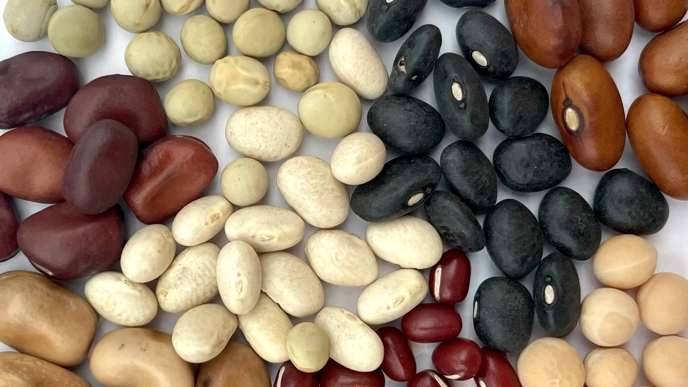
Expanding the functional genomics toolbox
KEY POINTS- Method development for silencing candidate genes
- Fast validation for faster breeding of pulse crops
- Goal: seeds of higher end-use quality
Project overview
Participants
More related research
Global goals
- 2. Zero hunger
- 12. Responsible consumption and production
Short summary
Dry, edible seeds from legumes known as pulses, are a staple in global diets, with peas and common beans ranking among the most consumed varieties. Before consumption pulses must be cooked, making cooking quality a crucial aspect.
Unfortunately, cooking-quality defects such as hard-shell and hard-to-cook behaviour are prevalent in these pulses which severely affect their end-use quality.
While genome-wide association studies (GWAS) have been conducted to identify candidate genes causing these characteristics, their functional validation is missing. Yet, understanding the genes involved in these defects, could lead to a more efficient cultivar improvement through the use of modern DNA breeding techniques (e.g., CRISPR/Cas).
An innovative approach is needed that can validate the function of endogenous plant genes in seeds and pods. This project aims to develop and refine a method for gene silecing in seeds and pods of pea and common bean, paving the way for breeding cultivars of superior end-use quality. Furthermore, the project will utilise multiple genomes within the same species (called pangenomics) to evaluate candidate genes, thereby adding a new powerful benchmarking tool for candidate-gene selection.